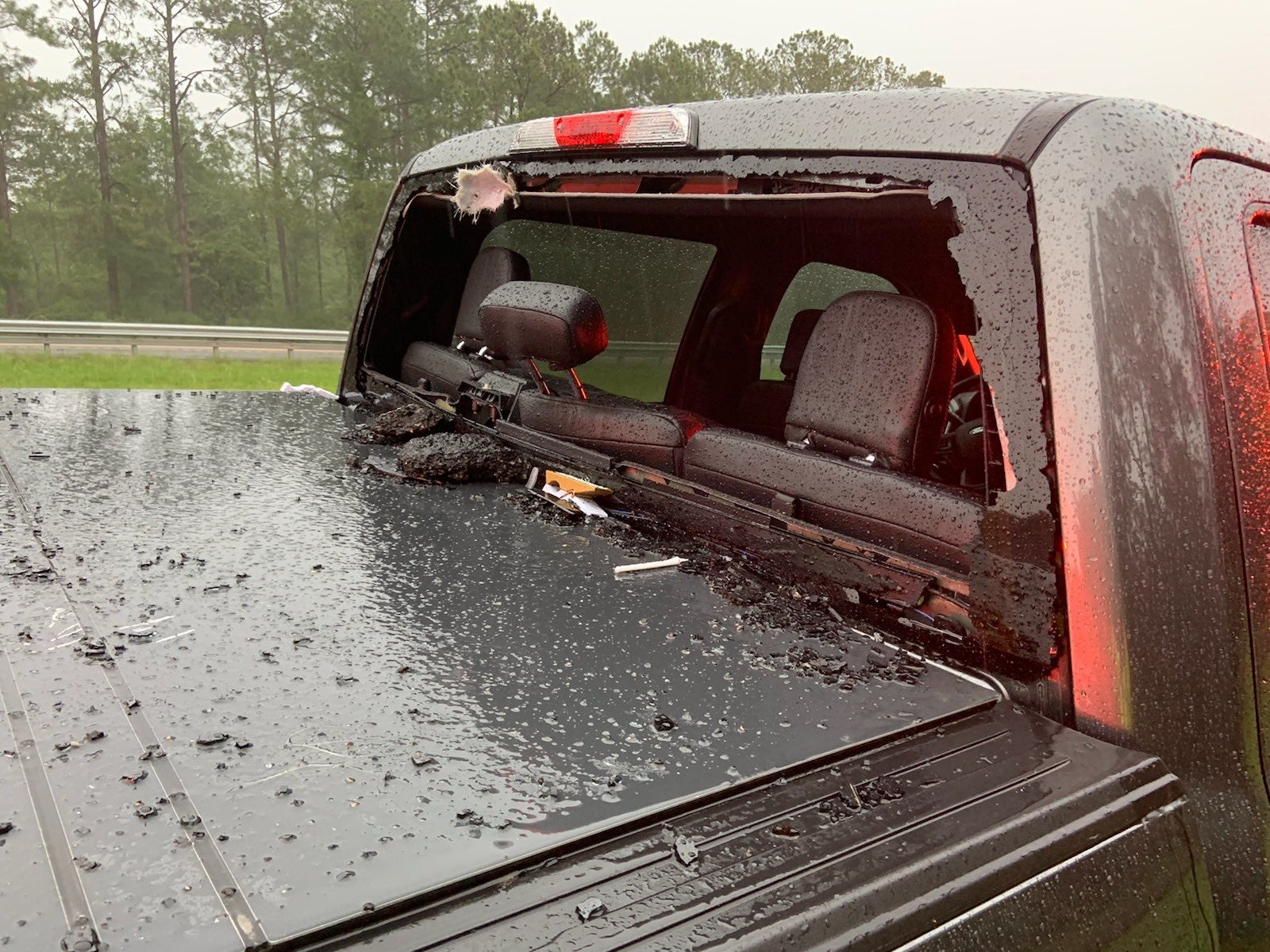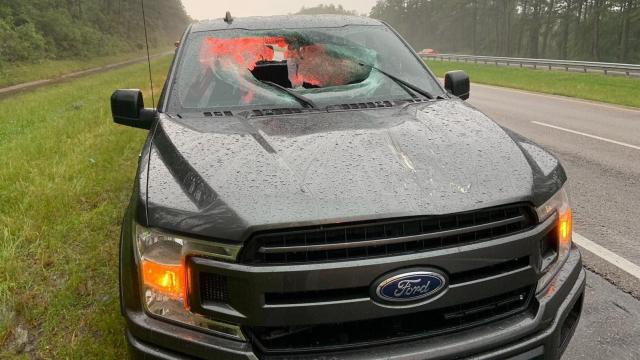Zeus stands tall upon Mount Olympus, hurling his bolts of destruction down upon us mere mortals. We cower in our insulated automobiles, kept from harm by our rubber tires. ‘The Gods cannot harm me here,’ we think to ourselves, unaware of the naïveté of such a statement. The Gods, my friends, want to harm you, and they are getting creative. A lightning bolt came crashing down on a highway 10 in Florida between Pensacola and Tallahassee on Monday morning, launching a hunk of blacktop up into the path of a moving Ford F-series.
Nobody is quite sure exactly what caused the piece of pavement to levitate, but the going theory, meteorologist Chris Vagasky tells the Washington Post, is that water had seeped into cracks in the road and were instantly vaporized by the lightning strike. The sudden and violent expansion of liquid turning into gas thrust the hunk up into the air just as two unsuspecting motorists hurtled headlong into the hunk. The congealed tar and stone blasted through the front windshield, appears to have impacted the rear middle seat, and blasted through the rear window. A true through-and-through.
While both driver and passenger were injured and transported to the hospital, neither appear to have been impacted by the projectile itself. Both people in the vehicle suffered lacerations from flying windshield glass, but if they’d been hit by such a heavy and dense piece of tarmac, the injuries might have been much more severe. Just look at how the rear seat headrest was shoved back half a foot and you’ll know how much more serious this could have been.

Monday’s storm front in the area was considered a weak one, dropping a mere half inch of rain over two hours, and gusting winds only up to 30 miles per hour. The storm was absolutely packed with electrical energy, however, as the strike causing this incident peaked at 35,000 amps of current.
The sky was angry that day, my friends. Maybe it’s time to sacrifice a chicken or something? What kind of food does Zeus like?
